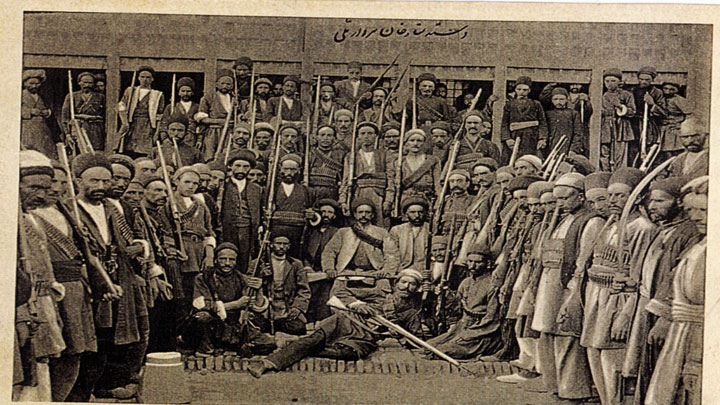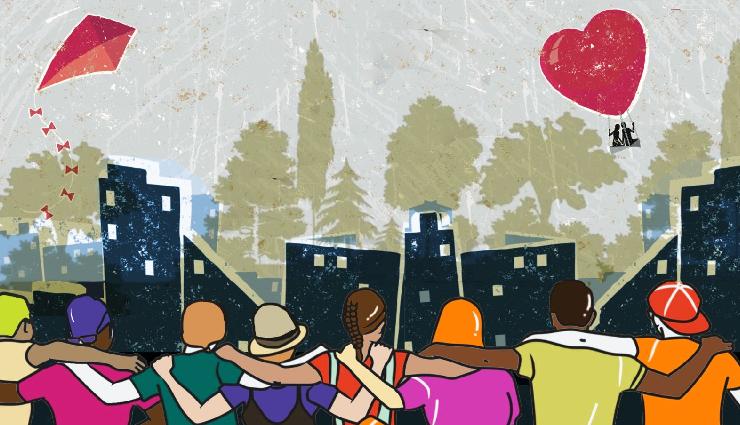Civil society is a phrase used in the media and the language of many politicians, thinkers, and intellectuals. Have you ever heard or read anything about the meaning of this phrase, its functions, and its criticisms? Civil society is a modern concept, but its roots go back to the distant past. In this article, while saying what civil society means, we also discuss its functions and its criticisms.
What is civil society?
Civil society is a concept that does not have a clear and specific meaning. Although this phrase has been heard many times by politicians, philosophers, and sociologists, it still does not have a clear definition. However, it can be recognized by its examples.
Civil society consists of a set of different institutions and organizations that are independent of the government and the private sector. Based on this, it is sometimes called the third part of society. Schools and universities, guilds, religious and cultural institutions, and active groups in various fields are among the constituent elements of civil society. However, the complex nature of this concept cannot be summarized in these examples, and to better understand it, we must look at the evolution of this concept over time.
History of civil society

ancient times
Although civil society continues to evolve and change, the concept dates back to ancient Rome. Cicero, the Roman politician, and philosopher, first used civil society for urban people who gathered together under the rule of law and knew urban etiquette. Cicero used this concept in contrast to the tribal communities with which the Roman Empire was involved. Therefore, the two principles of Cicero’s definition were “urbanism” and “rule of law.”
Middle Ages to the 18th century
During the Middle Ages, the concept of civil society became popular. But in the 17th century, known as the Age of Enlightenment, it got a new life. Thinkers like Thomas Hobbes and John Locke defined the rule of law and the characteristics of good government with the help of the concept of civil society. According to their thinking, the social contract formed between the members of a society is a prerequisite for the formation of the state.
In the 18th century, thinkers such as Adam Smith considered civil society to be the result of the formation of economic relations between members of society independent of the government. According to Smith, a set of interactions of different people in a society who pursue personal interests in combination with the public space of society that follows collective goals leads to the formation of civil society. According to Smith’s writings, what is written in newspapers and what is open to discussion in cafes and political parties are examples of civil society. These opinions and ideas in the form of public opinion or society play an important role in political decisions.
19th century
In the 19th century, Hegel, a German thinker, and Alexis Dutoqueville, a French philosopher and politician, provided a different definitions of civil society. They argued that civil society has an independent nature from politics. From their point of view, civil society has a different structure and goals from political institutions. Hegel said that the direct role of these civil institutions in solving society’s problems and issues without the intervention of government institutions means their independent nature. According to him, civil society has a different character from the government and is the result of a set of needs between the two concepts of family and government.
Civil society and democracy in the 20th century
From the beginning of the 20th century to the 60s, civil society was not discussed much in intellectual circles. But in the early 80s, the debate on this concept between thinkers and politicians flourishes.
In the 1980s, Smith’s conception of civil society was used in political and economic debates to describe civil resistance movements formed in Eastern Europe and Latin America. Neoliberal thinkers defined civil society as a combination of the free market and an authoritarian government whose power is limited by law. This definition was noticed by the movements that sought democracy in Eastern Europe under the domination of communist governments.
The intellectual circles formed in these societies believed that citizens would gain more power to participate in the community with the free market and private economic growth. Therefore, economic development leads to civil society and, as a result, democracy. This view became the primary tool of thinkers and politicians in the West in the 90s. Most of them thought that with the economic growth of society and opening the country’s doors to world trade, it was possible to develop civil society. As a result, civil society will also move towards democracy.
In this regard, efforts were also made by international organizations with the support of Western countries for economic development in some African countries in the hope that these efforts for economic progress would lead to the growth of civil society there.
Contemporary spin
At the end of the 1990s, the growth of China’s economic development approaches and its opposition to globalization without challenging its undemocratic government by the people caused doubts about the functioning of civil society. Suppose every civil society eventually moves towards freedom and democracy. Why did China’s populous community, whose hundreds of millions of people joined the middle class with economic growth, still obey and obey the Chinese Communist Party?
Of course, against China’s violation, there are successful examples of democracy development in Eastern European countries. Therefore, the correct question is whether economic growth in any society necessarily leads to democracy.
Functions and goals of civil society

As we said, civil society can be described by its examples. Social and cultural institutions and various guilds form civil society. People of an organization achieve the goals of civil society by volunteering and pursuing their concerns. These goals usually arise from needs and problems the government or private sector can or will not solve.
For example, consider the issue of the environment. These days, environmental groups worldwide are doing great work to gain public attention and influence political decision-making. These activities include holding marches and conferences, meeting with countries’ political leaders, and raising awareness about environmental problems.
At the local level, environmental activists try to solve the ecological problems of their living area or country. All these are manifestations of civil society. Another example is charity organizations that try to free financial prisoners from the prison. Newspapers and free media are also part of civil society, watchful eyes that monitor government and private sector activities. If they see errors and deviations, they report and follow up on them. All these are examples of the functions and goals of civil society.
Throughout history, civil society in Iran and the world in its various forms has been the initiator of multiple currents and movements, from constitutionalist activities to limit the power of the king to the black civil rights movement in the 60s of America. Therefore, civil society seeks to realize various values and goals of society through mostly voluntary activities.
Criticisms of civil society
Despite these functions, some thinkers do not consider civil society flawless. For example, environmental organizations and groups these days greatly influence political decisions without being elected or held accountable for their lobbying and pressure.
Shankar Satyanath, professor of political science at New York University, argues in an article titled “Bowling for Fascism” that Hitler came to power in the 1930s with the broad support of civil society. Some thinkers also say that civil society should not be related to democracy, turning this connection into a cliché. Instead, the possibility of civil society moving towards extreme nationalism and totalitarianism should also be considered.
In another criticism, Partha Chatterjee, a political science thinker, considers civil society as a society limited to a particular class, a community in which only privileged people can participate. According to Chaterjai, civil society in most parts of the world is limited to specific categories of people and does not include all types of organizations. It is not that the people of a community do not want to be part of civil society, but this possibility has been denied to them due to economic gaps.
The role of civil society and non-governmental organizations in the world economy
Although it is difficult to calculate the dimensions of civil activities, the value of NGO activities as a symbol of civil society has been estimated at 2.2 trillion dollars, which is more than the gross domestic product of many countries. About 350 million people work in this sector, equivalent to 54 million full-time workers who do voluntary activities.
last word
Civil society is a complex concept, and it was impossible to reveal all its dimensions in this article. Therefore, while inviting you, dear audience, to read more about this concept, we request you to write us your comments and criticisms about this article in the comments section.



